People often ask me where I get my story ideas and my storytelling ability. And I thank you most humbly for referring to it as an ability. Ha! Well, I was a voracious reader from my earliest memories is the best way that I can account for it. My father had an extensive personal library of over 3,000 volumes when I was growing up–arranged like a library with fiction, non-fiction, reference categories–including a lovely leather bound 50 book collection containing many British and American classics. And, of course, our school and local public library had book borrowing programs that encouraged reading by youngsters.
And, I’m not kidding about the 3,000 books in my Dad’s personal library. The heart of our  home was our walnut paneled family room [(1) right]–with walls made of ¾ inch thick solid walnut tongue and grooved panels milled from trees cleared from the lot when we built our home–had three large floor to ceiling stuffed to the gills bookshelves on one wall surrounding the fireplace. Dad asked me to catalogue all of the books one Summer during my high school years–for a penny an index card’s worth of information about each book. I stopped at 750 books and earning $7.50, not having completed the first book shelf section. It was long and tedious work–and cut into my own reading time. Ha! And perhaps I should note, that my father’s nickname in high school was Prof–as in professor, though he became an electrical engineer.
home was our walnut paneled family room [(1) right]–with walls made of ¾ inch thick solid walnut tongue and grooved panels milled from trees cleared from the lot when we built our home–had three large floor to ceiling stuffed to the gills bookshelves on one wall surrounding the fireplace. Dad asked me to catalogue all of the books one Summer during my high school years–for a penny an index card’s worth of information about each book. I stopped at 750 books and earning $7.50, not having completed the first book shelf section. It was long and tedious work–and cut into my own reading time. Ha! And perhaps I should note, that my father’s nickname in high school was Prof–as in professor, though he became an electrical engineer.
 One book in my father’s library that I particularly loved–especially after reading it again and discussing in a lit course in college–was Winesburg, Ohio [(2) left; and (3)] by Sherwood Anderson [(4)] in 1919. It is a gem of a book containing stories about a small town with a big heart and filled with characters that define that term. The concise chapters are charming vignettes of these characters’ lives and the town, told in poignant detail. The book would make a charming film with the right treatment of it.
One book in my father’s library that I particularly loved–especially after reading it again and discussing in a lit course in college–was Winesburg, Ohio [(2) left; and (3)] by Sherwood Anderson [(4)] in 1919. It is a gem of a book containing stories about a small town with a big heart and filled with characters that define that term. The concise chapters are charming vignettes of these characters’ lives and the town, told in poignant detail. The book would make a charming film with the right treatment of it.
All of the Winesburg, Ohio chapters are lovely really, also interweaving the story of George Willard throughout as well–the every man, or every boy, in this instance. And perhaps we can recall our own awakenings of young adult hood and love in George’s tale of “Sophistication” in Sherwood Anderson’s Winesburg, Ohio. So today, I share someone else’s story with you. The “Sophistication” chapter quoted below [(5)] may be found at the wonderful Bartleby.com resources in the hyperlink above:
|
Sherwood Anderson (1876–1941). Winesburg, Ohio. 1919. |
|
Sophistication |
| IT was early evening of a day in, the late fall and the Winesburg County Fair had brought crowds of country people into town. The day had been clear and the night came on warm and pleasant. On the Trunion Pike, where the road after it left town stretched away between berry fields now covered with dry brown leaves, the dust from passing wagons arose in clouds. Children, curled into little balls, slept on the straw scattered on wagon beds. Their hair was full of dust and their fingers black and sticky. The dust rolled away over the fields and the departing sun set it ablaze with colors. |
1 |
| In the main street of Winesburg crowds filled the stores and the sidewalks. Night came on, horses whinnied, the clerks in the stores ran madly about, children became lost and cried lustily, an American town worked terribly at the task of amusing itself. |
2 |
| Pushing his way through the crowds in Main Street, young George Willard concealed himself in the stairway leading to Doctor Reefy’s office and looked at the people. With feverish eyes he watched the faces drifting past under the store lights. Thoughts kept coming into his head and he did not want to think. He stamped impatiently on the wooden steps and looked sharply about. “Well, is she going to stay with him all day? Have I done all this waiting for nothing?” he muttered. |
3 |
| George Willard, the Ohio village boy, was fast growing into manhood and new thoughts had been coming into his mind. All that day, amid the jam of people at the Fair, he had gone about feeling lonely. He was about to leave Winesburg to go away to some city where he hoped to get work on a city newspaper and he felt grown up. The mood that had taken possession of him was a thing known to men and unknown to boys. He felt old and a little tired. Memories awoke in him. To his mind his new sense of maturity set him apart, made of him a half-tragic figure. He wanted someone to understand the feeling that had taken possession of him after his mother’s death. |
4 |
| There is a time in the life of every boy when he for the first time takes the backward view of life. Perhaps that is the moment when he crosses the line into manhood. The boy is walking through the street of his town. He is thinking of the future and of the figure he will cut in the world. Ambitions and regrets awake within him. Suddenly something happens; he stops under a tree and waits as for a voice calling his name. Ghosts of old things creep into his consciousness; the voices outside of himself whisper a message concerning the limitations of life. From being quite sure of himself and his future he becomes not at all sure. If he be an imaginative boy a door is tom open and for the first time he looks out upon the world, seeing, as though they marched in procession before him, the countless figures of men who before his time have come out of nothingness into the world, lived their lives and again disappeared into nothingness. The sadness of sophistication has come to the boy. With a little gasp he sees himself as merely a leaf blown by the wind through the streets of his village. He knows that in spite of all the stout talk of his fellows he must live and die in uncertainty, a thing blown by the winds, a thing destined like corn to wilt in the sun. He shivers and looks eagerly about. The eighteen years he has lived seem but a moment, a breathing space in the long march of humanity. Already he hears death calling. With all his heart he wants to come close to some other human, touch someone with his hands, be touched by the hand of another. If he prefers that the other be a woman, that is because he believes that a woman will be gentle, that she will understand. He wants, most of all, understanding. |
5 |
| When the moment of sophistication came to George Willard his mind turned to Helen White, the Winesburg banker’s daughter. Always he had been conscious of the girl growing into womanhood as he grew into manhood. Once on a summer night when he was eighteen, he had walked with her on a country road and in her presence had given way to an impulse to boast, to make himself appear big and significant in her eyes. Now he wanted to see her for another purpose. He wanted to tell her of the new impulses that had come to him. He had tried to make her think of him as a man when he knew nothing of manhood and now he wanted to be with her and to try to make her feel the change he believed had taken place in his nature. |
6 |
| As for Helen White, she also had come to a period of change. What George felt, she in her young woman’s way felt also. She was no longer a girl and hungered to reach into the grace and beauty of womanhood. She had come home from Cleveland, where she was attending college, to spend a day at the Fair. She also had begun to have memories. During the day she sat in the grand-stand with a young man, one of the instructors from the college, who was a guest of her mother’s. The young man was of a pedantic turn of mind and she felt at once he would not do for her purpose. At the Fair she was glad to be seen in his company as he was well dressed and a stranger. She knew that the fact of his presence would create an impression. During the day she was happy, but when night came on she began to grow restless. She wanted to drive the instructor away, to get out of his presence. While they sat together in the grand-stand and while the eyes of former schoolmates were upon them, she paid so much attention to her escort that he grew interested. “A scholar needs money. I should marry a woman with money,” he mused. |
7 |
| Helen White was thinking of George Willard even as he wandered gloomily through the crowds thinking of her. She remembered the summer evening when they had walked together and wanted to walk with him again. She thought that the months she had spent in the city, the going to theaters and the seeing of great crowds wandering in lighted thoroughfares, had changed her profoundly. She wanted him to feel and be conscious of the change in her nature. |
8 |
| The summer evening together that had left its mark on the memory of both the young man and woman had, when looked at quite sensibly, been rather stupidly spent. They had walked out of town along a country road. Then they had stopped by a fence near a field of young corn and George had taken off his coat and let it hang on his arm. “Well, I’ve stayed here in Winesburg—yes—I’ve not yet gone away but I’m growing up,” he had said. “I’ve been reading books and I’ve been thinking. I’m going to try to amount to something in life. |
9 |
| “Well,” he explained, “that isn’t the point. Perhaps I’d better quit talking.” |
10 |
| The confused boy put his hand on the girl’s arm. His voice trembled. The two started to walk back along the road toward town. In his desperation George boasted, “I’m going to be a big man, the biggest that ever lived here in Winesburg,” he declared. “I want you to do something, I don’t know what. Perhaps it is none of my business. I want you to try to be different from other women. You see the point. It’s none of my business I tell you. I want you to be a beautiful woman. You see what I want.” |
11 |
| The boy’s voice failed and in silence the two came back into town and went along the street to Helen White’s house. At the gate he tried to say something impressive. Speeches he had thought out came into his head, but they seemed utterly pointless. “I thought—I used to think—I had it in my mind you would marry Seth Richmond. Now I know you won’t,” was all he could find to say as she went through the gate and toward the door of her house. |
12 |
| On the warm fall evening as he stood in the stairway and looked at the crowd drifting through Main Street, George thought of the talk beside the field of young corn and was ashamed of the figure he had made of himself. In the street the people surged up and down like cattle confined in a pen. Buggies and wagons almost filled the narrow thoroughfare. A band played and small boys raced along the sidewalk, diving between the legs of men. Young men with shining red faces walked awkwardly about with girls on their arms. In a room above one of the stores, where a dance was to be held, the fiddlers tuned their instruments. The broken sounds floated down through an open window and out across the murmur of voices and the loud blare of the horns of the band. The medley of sounds got on young Willard’s nerves. Everywhere, on all sides, the sense of crowding, moving life closed in about him. He wanted to run away by himself and think. “If she wants to stay with that fellow she may. Why should I care? What difference does it make to me?” he growled and went along Main Street and through Hern’s Grocery into a side street. |
13 |
| George felt so utterly lonely and dejected that he wanted to weep but pride made him walk rapidly along, swinging his arms. He came to Wesley Moyer’s livery barn and stopped in the shadows to listen to a group of men who talked of a race Wesley’s stallion, Tony Tip, had won at the Fair during the afternoon. A crowd had gathered in front of the barn and before the crowd walked Wesley, prancing up and down boasting. He held a whip in his hand and kept tapping the ground. Little puffs of dust arose in the lamplight. “Hell, quit your talking,” Wesley exclaimed. “I wasn’t afraid, I knew I had ’em beat all the time. I wasn’t afraid.” |
14 |
| Ordinarily George Willard would have been intensely interested in the boasting of Moyer, the horseman. Now it made him angry. He turned and hurried away along the street. “Old windbag,” he sputtered. “Why does he want to be bragging? Why don’t he shut up?” |
15 |
| George went into a vacant lot and, as he hurried along, fell over a pile of rubbish. A nail protruding from an empty barrel tore his trousers. He sat down on the ground and swore. With a pin he mended the torn place and then arose and went on. “I’ll go to Helen White’s house, that’s what I’ll do. I’ll walk right in. I’ll say that I want to see her. I’ll walk right in and sit down, that’s what I’ll do,” he declared, climbing over a fence and beginning to run. |
16 |
| On the veranda of Banker White’s house Helen was restless and distraught. The instructor sat between the mother and daughter. His talk wearied the girl. Although he had also been raised in an Ohio town, the instructor began to put on the airs of the city. He wanted to appear cosmopolitan. “I like the chance you have given me to study the background out of which most of our girls come,” he declared. “It was good of you, Mrs. White, to have me down for the day.” He turned to Helen and laughed. “Your life is still bound up with the life of this town?” he asked. “There are people here in whom you are interested?” To the girl his voice sounded pompous and heavy. |
17 |
| Helen arose and went into the house. At the door leading to a garden at the back she stopped and stood listening. Her mother began to talk. “There is no one here fit to associate with a girl of Helen’s breeding,” she said. |
18 |
| Helen ran down a flight of stairs at the back of the house and into the garden. In the darkness she stopped and stood trembling. It seemed to her that the world was full of meaningless people saying words. Afire with eagerness she ran through a garden gate and, turning a corner by the banker’s barn, went into a little side street. “George! Where are you, George?” she cried, filled with nervous excitement. She stopped running, and leaned against a tree to laugh hysterically. Along the dark little street came George Willard, still saying words. “I’m going to walk right into her house. I’ll go right in and sit down, “ he declared as he came up to her. He stopped and stared stupidly. “Come on,” he said and took hold of her hand. With hanging heads they walked away along the street under the trees. Dry leaves rustled under foot. Now that he had found her George wondered what he had better do and say. |
19 |
| At the upper end of the Fair Ground, in Winesburg, there is a half decayed old grand-stand. It has never been painted and the boards are all warped out of shape. The Fair Ground stands on top of a low hill rising out of the valley of Wine Creek and from the grand-stand one can see at night, over a cornfield, the lights of the town reflected against the sky. |
20 |
| George and Helen climbed the hill to the Fair Ground, coming by the path past Waterworks Pond. The feeling of loneliness and isolation that had come to the young man in the crowded streets of his town was both broken and intensified by the presence of Helen. What he felt was reflected in her. |
21 |
| In youth there are always two forces fighting in people. The warm unthinking little animal struggles against the thing that reflects and remembers, and the older, the more sophisticated thing had possession of George Willard. Sensing his mood, Helen walked beside him filled with respect. When they got to the grand-stand they climbed up under the roof and sat down on one of the long bench-like seats. |
22 |
| There is something memorable in the experience to be had by going into a fair ground that stands at the edge of a Middle Western town on a night after the annual fair has been held. The sensation is one never to be forgotten. On all sides are ghosts, not of the dead, but of living people. Here, during the day just passed, have come the people pouring in from the town and the country around. Farmers with their wives and children and all the people from the hundreds of little frame houses have gathered within these board walls. Young girls have laughed and men with beards have talked of the affairs of their lives. The place has been filled to overflowing with life. It has itched and squirmed with life and now it is night and the life has all gone away. The silence is almost terrifying. One conceals oneself standing silently beside the trunk of a tree and what there is of a reflective tendency in his nature is intensified. One shudders at the thought of the meaninglessness of life while at the same instant, and if the people of the town are his people, one loves life so intensely that tears come into the eyes. |
23 |
| In the darkness under the roof of the grand-stand, George Willard sat beside Helen White and felt very keenly his own insignificance in the scheme of existence. Now that he had come out of town where the presence of the people stirring about, busy with a multitude of affairs, had been so irritating, the irritation was all gone. The presence of Helen renewed and refreshed him. It was as though her woman’s hand was assisting him to make some minute readjustment of the machinery of his life. He began to think of the people in the town where he had always lived with something like reverence. He had reverence for Helen. He wanted to love and to be loved by her, but he did not want at the moment to be confused by her womanhood. In the darkness he took hold of her hand and when she crept close put a hand on her shoulder. A wind began to blow and he shivered. With all his strength he tried to hold and to understand the mood that had come upon him. In that high place in the darkness the two oddly sensitive human atoms held each other tightly and waited. In the mind of each was the same thought. “I have come to this lonely place and here is this other,” was the substance of the thing felt. |
24 |
| In Winesburg the crowded day had run itself out into the long night of the late fall. Farm horses jogged away along lonely country roads pulling their portion of weary people. Clerks began to bring samples of goods in off the sidewalks and lock the doors of stores. In the Opera House a crowd had gathered to see a show and further down Main Street the fiddlers, their instruments tuned, sweated and worked to keep the feet of youth flying over a dance floor. |
25 |
| In the darkness in the grand-stand Helen White and George Willard remained silent. Now and then the spell that held them was broken and they turned and tried in the dim light to see into each other’s eyes. They kissed but that impulse did not last. At the upper end of the Fair Ground a half dozen men worked over horses that had raced during the afternoon. The men had built a fire and were heating kettles of water. Only their legs could be seen as they passed back and forth in the light. When the wind blew the little flames of the fire danced crazily about. |
26 |
| George and Helen arose and walked away into the darkness. They went along a path past a field of corn that had not yet been cut. The wind whispered among the dry corn blades. For a moment during the walk back into town the spell that held them was broken. When they had come to the crest of Waterworks Hill they stopped by a tree and George again put his hands on the girl’s shoulders. She embraced him eagerly and then again they drew quickly back from that impulse. They stopped kissing and stood a little apart. Mutual respect grew big in them. They were both embarrassed and to relieve their embarrassment dropped into the animalism of youth. They laughed and began to pull and haul at each other. In some way chastened and purified by the mood they had been in, they became, not man and woman, not boy and girl, but excited little animals. |
27 |
| It was so they went down the hill. In the darkness they played like two splendid young things in a young world. Once, running swiftly forward, Helen tripped George and he fell. He squirmed and shouted. Shaking with laughter, he rolled down the hill. Helen ran after him. For just a moment she stopped in the darkness. There was no way of knowing what woman’s thoughts went through her mind but, when the bottom of the hill was reached and she came up to the boy, she took his arm and walked beside him in dignified silence. For some reason they could not have explained they had both got from their silent evening together the thing needed. Man or boy, woman or girl, they had for a moment taken hold of the thing that makes the mature life of men and women in the modern world possible. |
28 |
References
(1) This is about a 9 year old me sitting in our walnut paneled family room. I photoshopped my then 3 year old sister out of the chair next to me. You can see two of the book shelves on either side of the fireplace. There was a third floor to ceiling book shelf to the left of this picture. Our family room was really 1.5 rooms that stretched from the front to the back of our home–with this section of our 2 story home being the one story narrower section adjacent to our 2 car garage. The 2 story section of our home had the eat in kitchen, living and dining rooms on the first floor and 4 bedrooms and 2 baths on the second floor.
The warm walnut wood paneling gave a very masculine and slightly formal feel to our family room–but for the interspersing of our kids’ toys about the room indicating that this was truly a family room. This was the room we spent most of our time in when we were indoors–playing games, watching movies, and celebrating life’s events. The family room was where our main Santa targeted tree was placed in the bay window alcove at Christmas time–well, Santa was coming down the chimney in the fireplace. Right? Ha! And one Christmas after my brother received an extensive small car race track set up, the family room floor was covered with an interweaving race car track–the starting point being the fireplace mantel, allowing gravity to help push the cars along.
(2) Winesburg, Ohio book cover was found at www.Amazon.com
(3) Delightfully, I also discovered that Winesburg, Ohio by Sherwood Anderson is available at Amazon on Kindle at and I have bought it for my Kindle for PC app. There is also an audio book version. Be sure to use RANet’s Amazon Associate link for all of your purchases because they donate back their commission fee to one of Richard Armitage’s chosen charities that he sponsors.
Here is the general link to the RANet Amazon Associate page for US and UK customers http://www.richardarmitagenet.com/raondvd.html Then type in the name of the book into Amazon’s search engine. Though might no longer see the RANet logo, they will still receive the commission, and then donate it to charity. I but all of my Amazon items–including my Richard Armitage dvd purchases–through RANet’s link because of this charitable donation. Snap!
(4) Information about author Sherwood Anderson is found at http://en.wikipedia.org/wiki/Sherwood_Anderson
(5) The excerpt of the chapter “Sophistication” from Winesburg, Ohio by Sherwood Anderson in 1919 is found at http://www.bartleby.com/156/24.html ; Another chapter I recommend you read is “Hands”–the first chapter–found at http://www.bartleby.com/156/2.html
I can’t say enough good things about www.Bartleby.com as a wonderful resource of the written word. Here is what Bartleby.com says about themselves:
“The preeminent Internet publisher of literature, reference and verse providing students, researchers and the intellectually curious with unlimited access to books and information on the web, free of charge.”
Here is the citation for the book:
Anderson, Sherwood. Winesburg, Ohio. New York: B.W. Huebsch, 1919; Bartleby.com, 1999. www.bartleby.com/156/. [Date of Printout].
(6) N.B.: Oh and for classic literature geekettes like me, I’m sure that you will have caught the reference to Melville’s short story “Bartleby the Scrivener” (http://www.bartleby.com/129/index.html) in the name of the Bartleby.com resource:
“Melville, Herman. 1853. Bartleby, the Scrivener.
In this classic short story, Melville presents us with a perplexing legal scrivener, Bartleby, and his disturbing effect on those around him.”








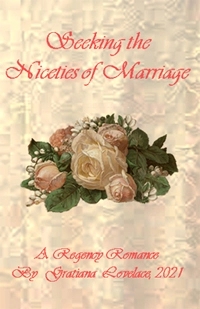

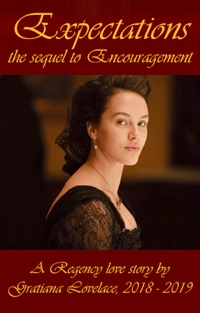
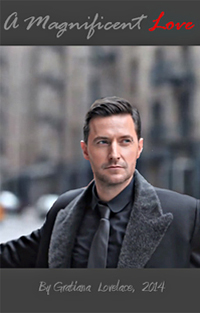








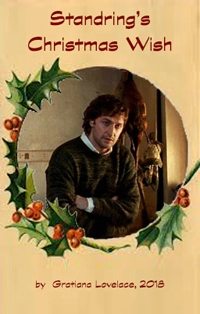

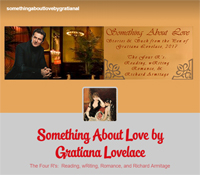








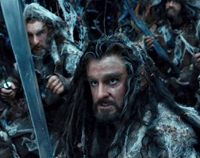













Interesting to read your reaction. Mine was totally different. I read Winesburg, Ohio in an Am Lit class in HS and found it unbelievably depressing, a sort of forecast of everything that would go wrong with my life if I kept living in my own small town, and a real incentive to get out and see the world.
LikeLiked by 1 person
Hi Servetus,
The book does have a bleak aspect to it at times. Rather the converse the humor found in a “Lake Woebegone” small town. Ha!
And like you, I choose to zero in on moments in the book that give me inspiration or provide a catalyst for living life fully. Perhaps that is why “Sophistication” seems so charming to me–it is one of the most upbeat chapters in the book.
Cheers! Grati ;->
P.S. I should also note that I’m a fan of “Our Town” by Thornton Wilder (http://en.wikipedia.org/wiki/Our_Town) –a reflection of life’s small and large moments from its deceased residents recalling their lives. What some might view as morbid, I view as poignant.
LikeLike
I find Lake Woebegone very sad to listen to at times — and at other times unbelievably condescending. My folks listen to that and think he’s poking fun at them and do not like it much.
I read “Our Town” the year before “Winesburg, Ohio” (i.e., in sophomore English). I think that play is really wasted on teenagers. I always find myself sympathizing with the “wrong” part of the text. I get it now.
LikeLiked by 1 person
To each their own.
LikeLike
3,000 books wow! We have a lot of books at our house but no 3,000. With all the kids books from my husbands and my childhood plus the books of the boys maybe 1,000. If I buy a book I tend to keep it. I have also saved every British magazine I have ever gotten (there about history, travel gardening and the royal family). I don’t remember reading this book in Am. Lit. or “Our Town”.
LikeLiked by 1 person
HI Katie70,
Thanks for your nice note! Yes, my Dad had quite a library. We were very fortunate. That’s neat that you have saved your magazines. You must have a big storage space. I gave up magazine subscriptions long ago because of space constraints and thinking that they needed to be recycle. I hope you like reading Anderson’s story here.
Cheers! Grati ;->
LikeLike
I put my magazines in totes and keep them in order. I spend to much on them to toss out or recycle them. When I am done I plan to donate to a library or have my sons do so. There not the read and toss type. One could use them for research. Anderson’s story.
LikeLiked by 1 person
Yes, we recycle magazines and donate books, too! Otherwise, they collect rather rapidly. That’s why I like the media is online these days–no recycling needed! Ha!
LikeLike
Opps I started to say Anderson’s story was good.
LikeLiked by 1 person
I’m glad that you enjoyed it!
LikeLike